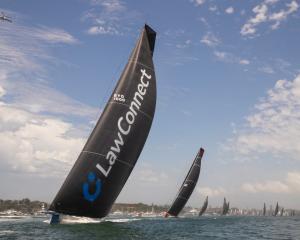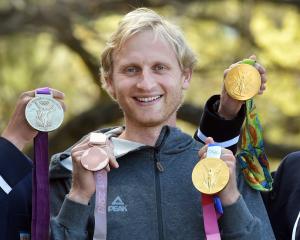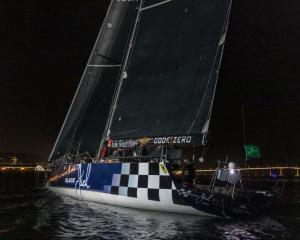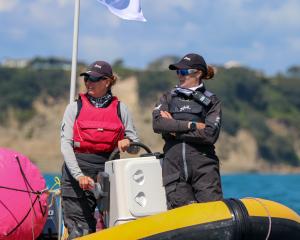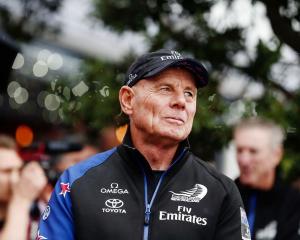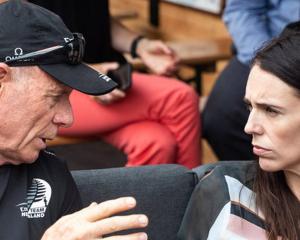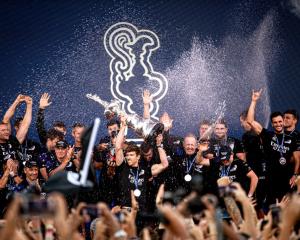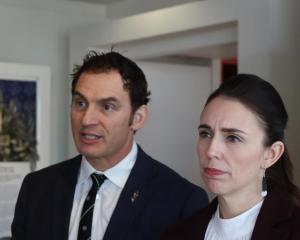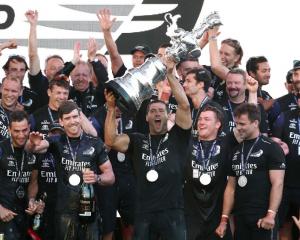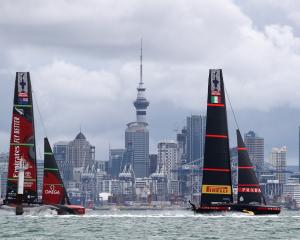Emirates Team New Zealand's pointed inquiries about Oracle's performance data seemed to have had an effect when Italy's Luna Rossa 'black flagged' their solo race yesterday.
It wasn't so - the Italians invoked the black flag, effectively abbreviating their one-boat race (supposed to have been against Artemis) for reasons other than thwarting holders Oracle of vital race information.
That information is performance data from races which the regatta's rules say must be made available to teams, media and the public. But, as defender, Oracle are not racing yet and have not been required to submit the same data.
Which means Oracle can zap round the racecourse in training mode, record all the data from their runs and then compare that against the performance data from the other teams made available under the rules. So the biggest unknown in the build-up to the Cup - your performance in relation to everyone else's - remains unknown to everybody except Oracle. Or, to be more accurate, Oracle have a better idea than anyone else.
Fair? Of course it's not fair. But this is the America's Cup, where things are usually slanted towards the defender.
There is no doubt Team NZ are nervous about Oracle's speed and the fact that they can train hard against each other with their two boats. ETNZ, on the other hand, are having one-boat races or easy wins instead of a tough challenger series which allows the crew and boat to develop sharply.
So Team NZ has asked the international jury a series of questions based around the contention that Oracle are racing round the course but are not submitting the same information as the challengers.
The objective appears to be either to persuade the jury that Oracle should be submitting their data if they are using the race course; or to keep them off the race and send them back to the general waters of San Francisco Bay - where they have been training up until Friday when Oracle's two boats used the course ahead of ETNZ's record-breaking run.
So, when Luna Rossa invoked the black flag for its one-off race yesterday, it looked for all the world as though the challengers were finding a way to block more information finding its way into Oracle's computers.
Black flagging means officials fly a black flag 10 minutes into a race to denote the disqualification of a yacht - the absent Artemis, in this instance. Under the regatta rules, teams taking part in a one-boat race can either race the whole distance or opt for the black flag. It means the end of the race and the end of any requirement to make performance data available.
However, helmsman Chris Draper said: "No, the only reason we did that was we had a lot of new stuff on the boat that we were a wee bit nervous about. That was basically why we did it - but we finished the race anyway just to make sure of the point."
This morning's two-boat race between Luna Rossa and ETNZ will once again require the teams to make their performance data available - again giving Oracle valuable information. It will be the Kiwis that most interest the watching Oracle team. Luna Rossa did nothing in yesterday's sail to suggest they will be able to stop ETNZ taking the race today; putting themselves into an unassailable position to win the round robin and move directly into the Louis Vuitton finals, starting August 17.
The Italians collected their third point of the regatta yesterday, recording a top speed of 38.37 knots in about 18 knots of breeze. There are far too many variables and unknowns for a direct comparison to carry any weight but when ETNZ set the speed record of 44.15 knots this week, they did so in 15.8 knots of wind. Luna Rossa is also clearly not gybing as well as the Kiwis, a vital part of the racing in these foiling AC72s.
"We are doing it really well when we are not racing," said Draper, "but when we have to do them in the race, we are not performing so well.
"We've implemented a new aero package on the boat. It makes us a bit more wind-friendly. The apparent wind [that experienced by a moving object] is so high you can take off in a plane in it. So anything we can do to reduce that friction is worthwhile. Oracle showed the way on this early on and we are catching up now and everything we can do to improve that last 10 per cent, we are doing."
- By Paul Lewis in San Francisco



